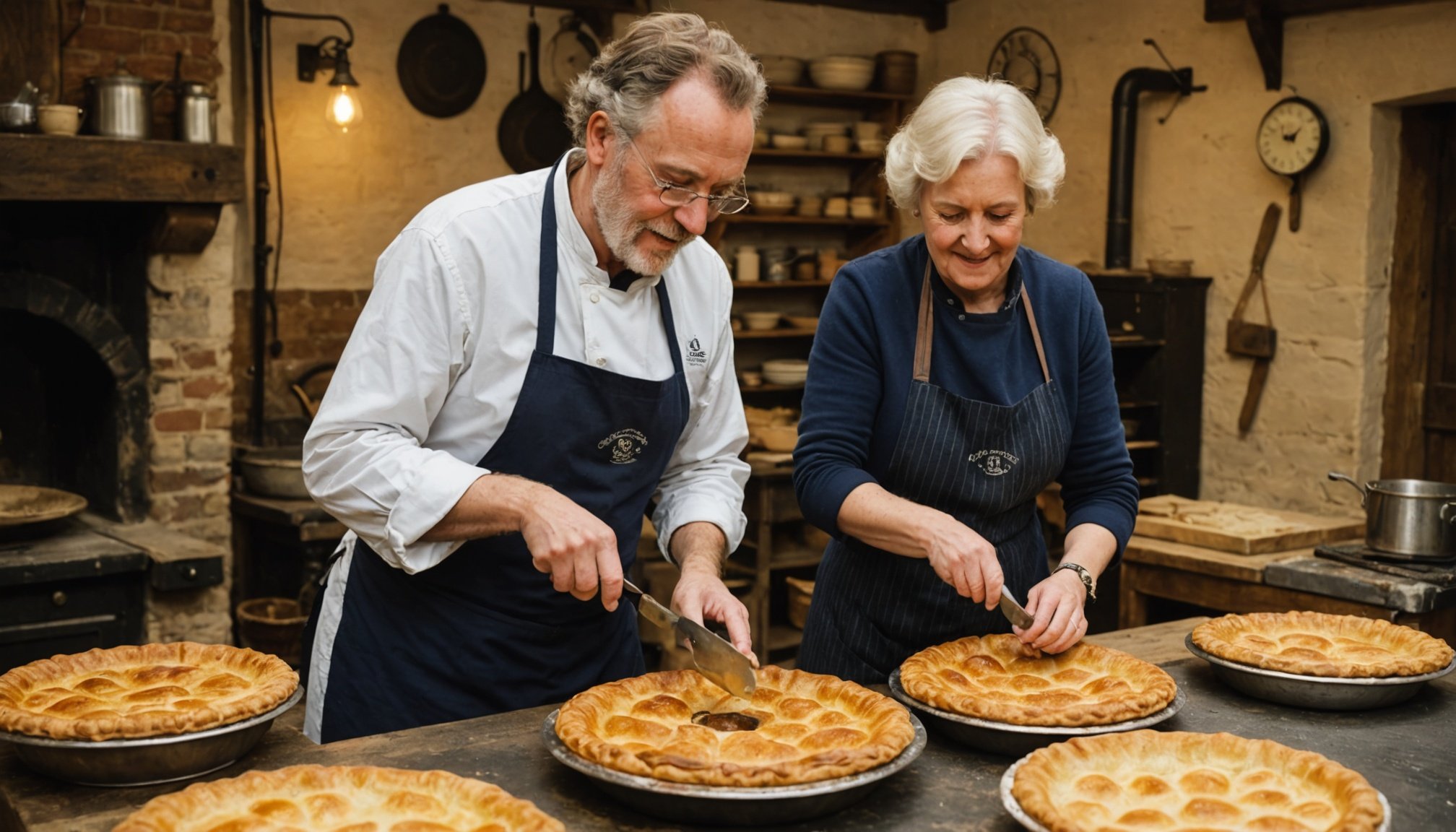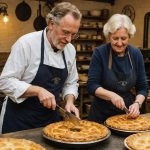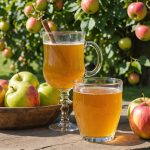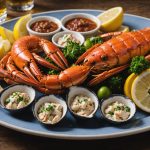Overview of British Pie Making
British pies have a rich history that dates back centuries, beginning as simple meals for workers and evolving into a cherished symbol of the UK’s culinary prowess. Originally, pies were known as “pyes” and served merely as a way to preserve food, with thick crusts designed to keep the fillings safe over extended periods. As time advanced, so did the art of pie-making, incorporating diverse ingredients and culinary techniques, thereby shaping modern British pie history.
Traditional techniques highlight the artisanal craftsmanship essential in British pies. A fundamental element is the creation of the perfect pastry crust—flaky and golden, yet robust enough to hold the hearty fillings. Common techniques involve using cold butter and quick kneading to avoid overworking the dough, maintaining a light texture. Additionally, traditional fillings often include meat, such as steak or lamb, reflecting local agricultural practices, although many variations have emerged over time.
Have you seen this : Discover Exciting Edwardian Era Ballroom Dancing Experiences for Tourists
Pies hold immense cultural significance in the UK, celebrated in festivals and embraced as comfort food. They embody both regional identities and shared national pride, with recipes passed down through generations. The tradition of pie-making remains a testament to Britain’s ability to adapt and innovate while honouring its rich culinary heritage.
Benefits of Attending Pie-Making Workshops
Attending pie-making workshops offers a wealth of hands-on experience that is invaluable for both the novice cook and the seasoned baker. These sessions provide participants the unique opportunity to learn directly from experts, who share insightful culinary skills and techniques tailored to mastering the art of pie-making. This direct guidance can significantly enhance your ability to create a perfectly crafted pie, from crust to filling.
In the same genre : Discover Engaging Workshops on Medieval Herbal Medicine for Tourists: Your Guide to Unique Experiences!
Workshops are designed to improve various aspects of your culinary skills. You will learn essential techniques, such as dough preparation, ingredient selection, and flavour balancing. These skills are refined through practical application, allowing participants to directly apply what they’ve learned in a supportive environment. Such skills are not only applicable to pies but can also elevate your general cooking proficiency.
Moreover, these workshops are a gateway to cultural immersion in British cuisine. They offer rich opportunities for cultural exchange, as participants engage with traditional recipes and cooking methods. This immersion fosters a deeper appreciation for the history and significance of British pies. Taking part in these workshops is more than just a cooking class; it’s an enriching experience that connects you with the culinary traditions of Britain.
Top Workshops for Pie Making in the UK
Exploring the best workshops for pie-making in the UK can transform your cooking skills into a delightful adventure. Whether you’re a novice or an experienced home cook, these classes offer engaging travel experiences to enhance your culinary repertoire.
The Edinburgh Pie School, Edinburgh
This workshop provides an immersive experience in the heart of Scotland’s capital. It runs for approximately two hours on weekday afternoons and costs around £60 per person. The Edinburgh Pie School is unique for its emphasis on traditional Scottish ingredients, allowing participants to create authentic dishes with a local twist. Attendees leave not only with newfound skills but also with stories about the history and cultural significance of pies in Scotland.
Pieology, Central London
Located in the bustling streets of London, Pieology offers an intriguing blend of contemporary and classic techniques. The three-hour session is priced at £85 and includes a guided tour through modern pie-making innovations. One unique feature of this workshop is the incorporation of sustainable practices in cooking, appealing to environmentally conscious individuals. As part of the travel experiences, attendees can also enjoy exploring London’s culinary scene post-workshop.
Granny’s Pie Secrets, Yorkshire
Set against the picturesque backdrop of Yorkshire, Granny’s Pie Secrets offers a warm, traditional setting. With a duration of two and a half hours, this class costs £70 and focuses on age-old family recipes passed down through generations. The workshop uniquely incorporates storytelling elements, ensuring that each participant appreciates the historical context of these beloved British dishes.
Embarking on these pie-making classes not only hones your skills but also enriches your travel experiences across the UK.
Techniques and Recipes Covered in Workshops
In our workshops, pastry techniques take center stage, equipping participants with the skills necessary to create impeccable pie crusts. One fundamental technique is blind baking—essential for pies with creamy or juicy fillings. By mastering these foundational skills, learners can build on their expertise, ensuring a flaky and tender crust every time.
Pie recipes explored in our workshops often feature a variety of quintessential fillings, reflecting the diverse culinary traditions of British cuisine. From steak and ale to chicken and leek, the possibilities are vast. Understanding nuances in these fillings allows for a customized culinary experience that caters to personal tastes.
The inclusion of seasonal ingredients is not merely a trend but an age-old practice. Seasonal fillings, such as rhubarb in spring or apples in fall, emphasize freshness and sustainability. These ingredients enhance flavor profiles and add a touch of seasonality to dishes. Furthermore, using what’s in season encourages environmentally conscious cooking, reducing the carbon footprint associated with transporting non-local produce.
Our workshops provide an immersive experience into the world of pies, blending technical skills with creativity to craft memorable culinary delights. Whether you’re a novice or a seasoned baker, these sessions offer invaluable insights into the art of pie-making.
Personal Testimonials and Experiences
Delving into the student feedback from past pie-making workshops highlights transformative learning experiences. Many participants express profound gratitude for the opportunity to enhance their skills, often describing the workshops as pivotal moments in their culinary journey.
Consider Jane, a fledgling baker, who shared, “This workshop completely transformed my approach to baking. I gained not only skills but also confidence.” Such experiences illustrate the impact that hands-on learning can have, paving the way for personal culinary advancements.
Beyond skills, the workshops promote community and shared excitement. Participants often recount stories of newfound friendships formed over discussions about dough and fillings. For instance, Mark, another participant, noted, “The camaraderie in the workshop was unexpected and incredible—sharing a love for pastry made it unforgettable.”
Recommendations from past attendees often highlight the personalised attention and expert guidance received. Many suggest these experiences are ideal for anyone looking to deepen their culinary expertise, regardless of initial skill level. As Sarah succinctly put it, “If you want to elevate your pie-making from a hobby to an art form, this workshop is a must.”
These authentic testimonies underscore the workshops’ educational and social benefits, encouraging others to embark on their own pie-making adventure.
Tips for Beginners in Pie Making
Embarking on your pie-making journey? Understanding the pie-making basics is essential. Equipping yourself with the right tools and ingredients can set the foundation for success. Begin with essential tools such as a rolling pin, pastry blender, and a pie dish. These will become your best friends in the kitchen. For ingredients, sticking to quality basics like all-purpose flour, cold butter, and fresh fruit will make a remarkable difference.
Aspiring bakers often face challenges. One of the common pitfalls is overworking the dough, which results in a tough crust. A gentle touch is key, and always allow the dough to rest. Another mistake is underbaking. Ensure you follow recommended baking times closely, aiming for a perfectly golden-brown finish.
Practice makes perfect, and starting with simple recipes can boost your confidence. Try a basic apple pie or a classic custard tart. These beginner tips provide an opportunity to explore flavors and techniques without overwhelming complexity. As you gain experience, tweak recipes and experiment with different fillings.
Remember, even seasoned bakers have their off days. Embrace the learning curve, and soon, you’ll craft delicious, picture-perfect pies.
Additional Resources and Historical Background
When delving into British cuisine, exploring the rich tradition of pie recipes offers a fascinating glimpse into culinary history. Pies have evolved significantly in Britain, reflecting societal changes over centuries. Initially, these dishes were essentially utilitarian, encased in a hard pastry shell that acted as a preservation method.
Historical context reveals that, over time, British pies transitioned from mere sustenance to becoming a beloved component of the national culinary tapestry, with innovations catering to both sweet and savoury tastes. This evolution is mirrored in an impressive array of pie recipes, from traditional steak and kidney pies to the sweet delights like apple and custard pies.
To further explore these culinary delights, there are various resources available. Cookbooks and online platforms offer a wealth of pie recipes that enthusiasts can dive into for self-study. For those intrigued by the history behind these dishes, suggested readings such as ‘A History of British Food’ provide valuable insights into the broader context of British culinary traditions. Engaging with these materials not only enhances your cooking repertoire but also enriches your understanding of the societal impacts on food evolution.
















